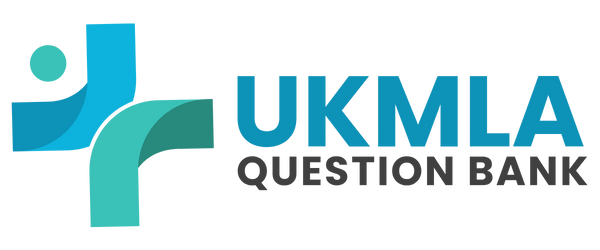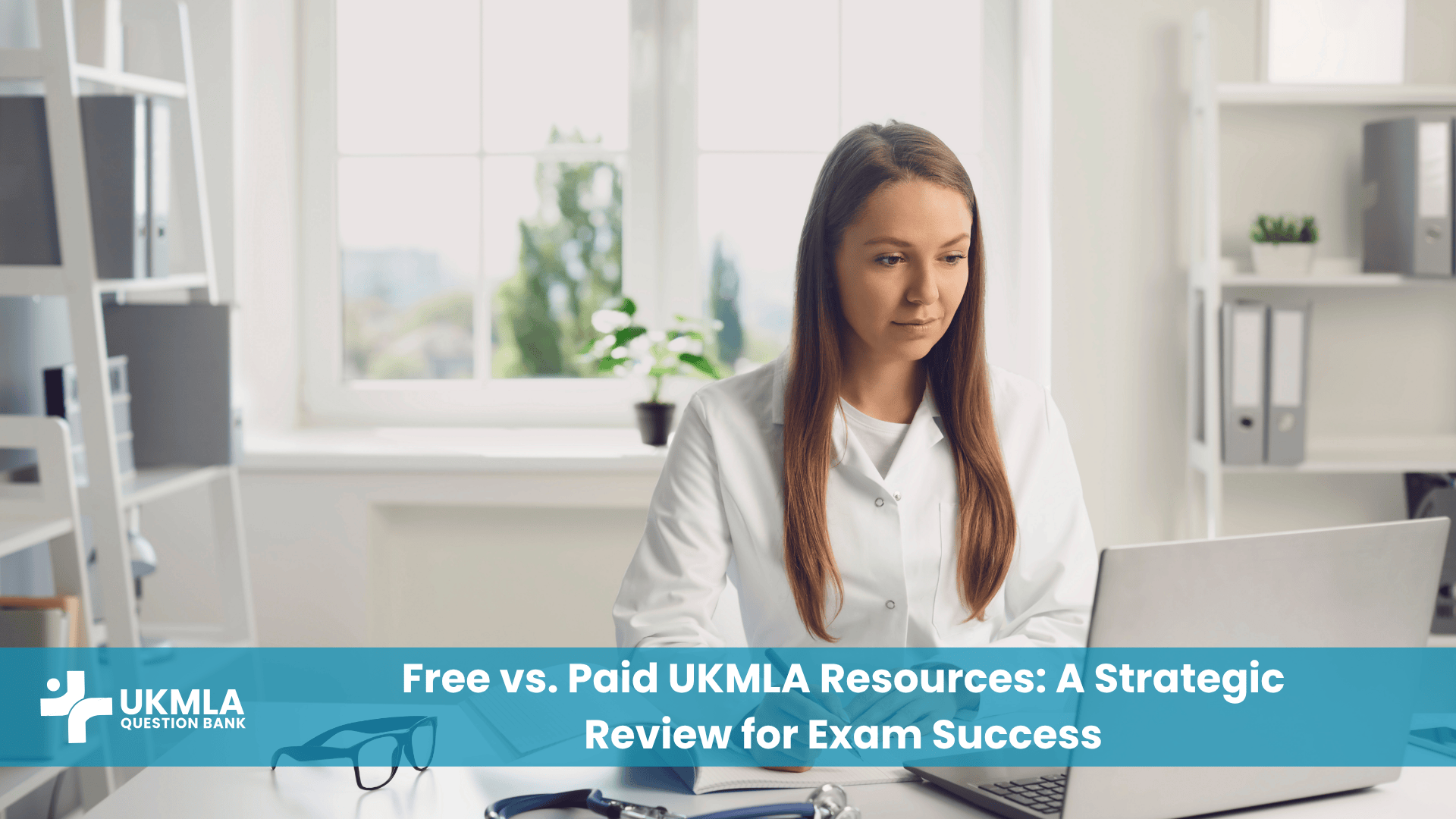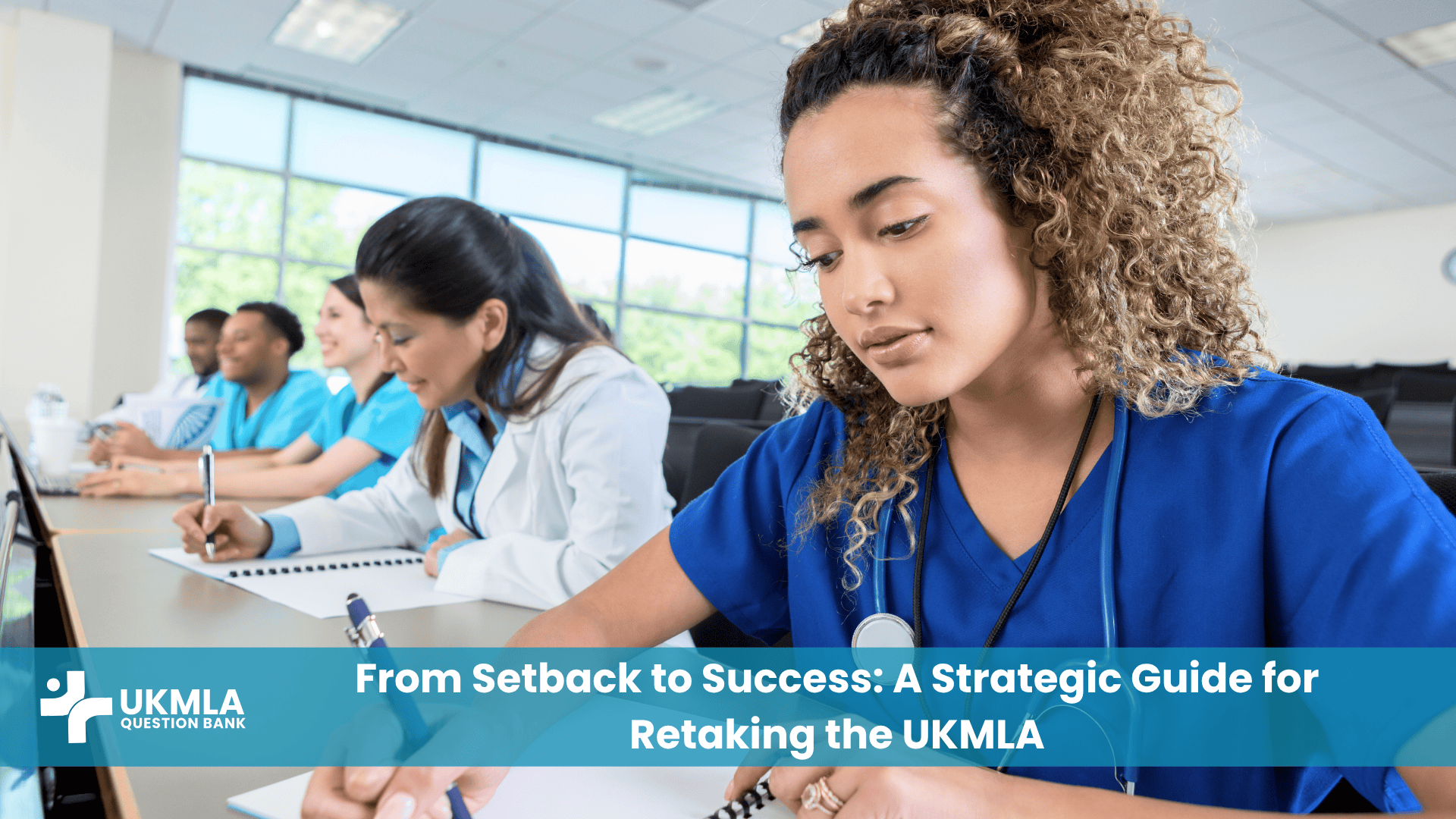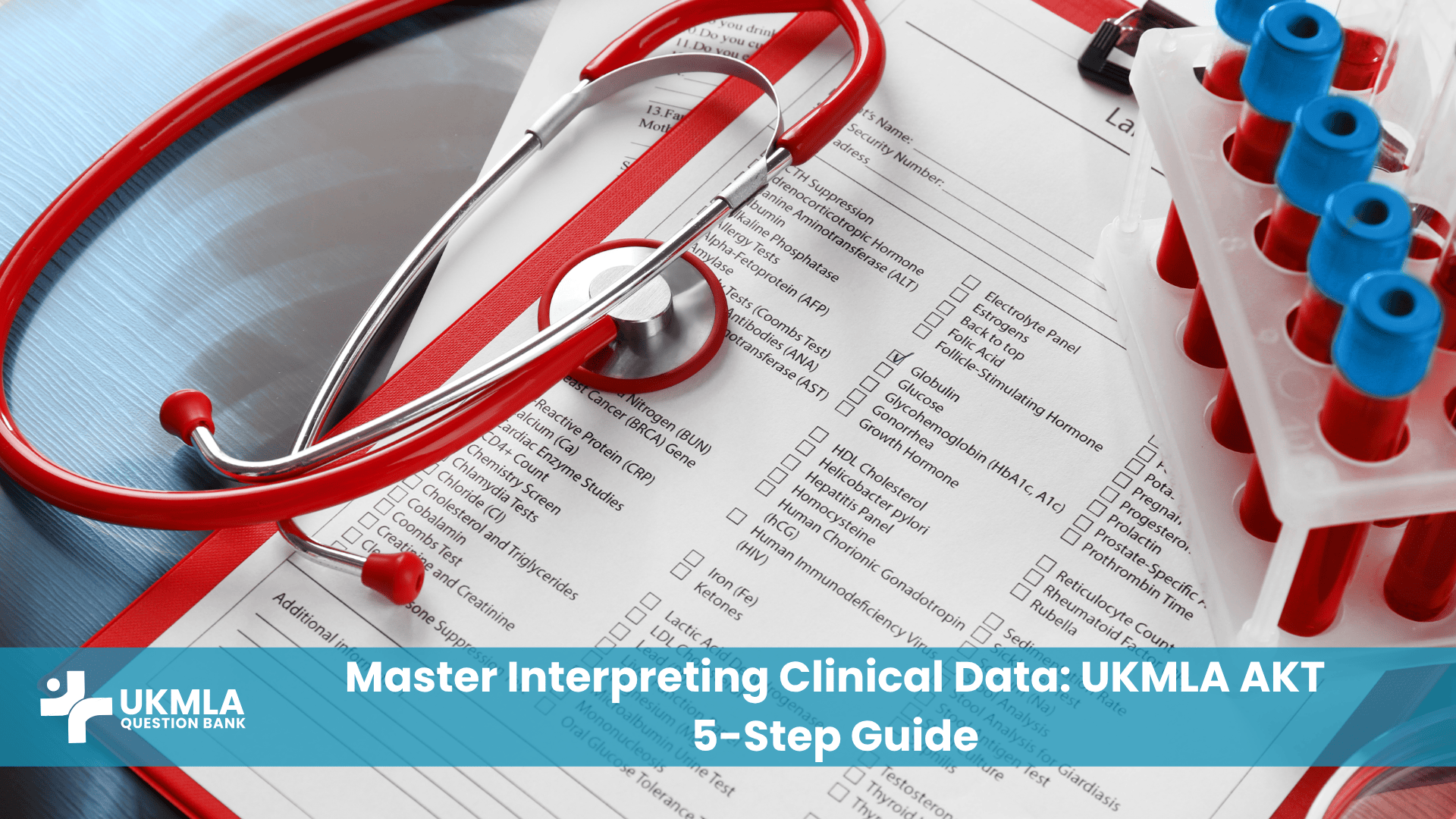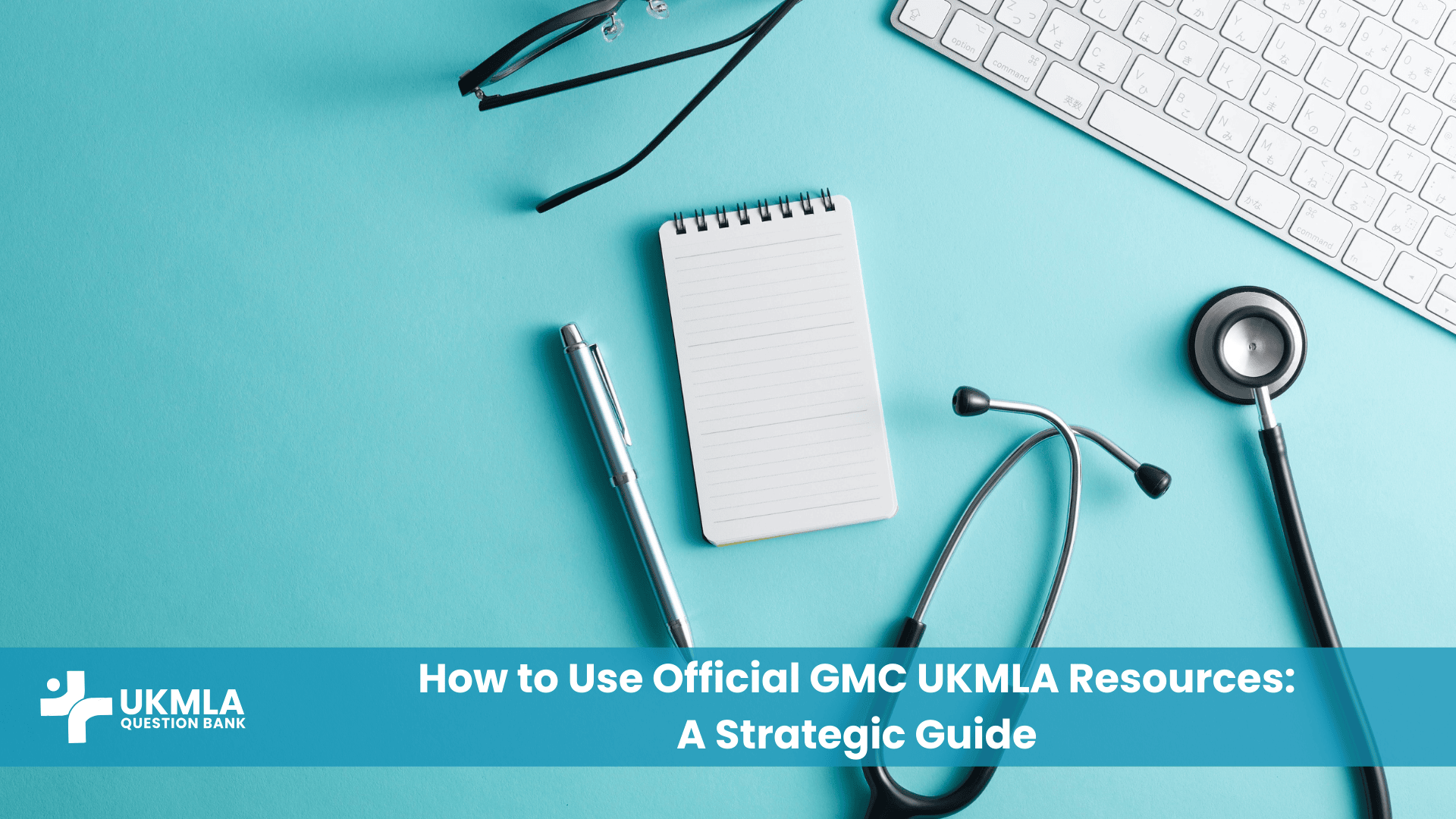Introduction
Deciding between free vs paid ukmla resources is one of the first major hurdles every candidate faces. The internet is saturated with options, from community-driven forums and free question samples to expensive, all-in-one preparatory courses, making it difficult to know where to best invest your two most precious assets: your time and your money. For many, especially students and international medical graduates, the financial pressure is a significant source of stress, leading to the crucial question: can you pass the UKMLA using only free resources, or are paid tools a necessary investment?
This guide is designed to provide a strategic review to help you navigate this complex landscape. We will break down the core trade-offs, evaluate the pros and cons of different resource types, and offer a balanced approach to building a personalized study arsenal that fits your budget and learning style. The goal is not just to find the cheapest path, but the most valuable one, ensuring every hour you spend and every pound you invest delivers the maximum return on your final score.
Table of Contents
ToggleThe Core Trade-Off: Understanding Value in UKMLA Prep
The central decision between free and paid resources isn’t just about cost; it’s a classic trade-off between time and money. Understanding this dynamic is the key to making smart choices that align with your personal circumstances.
The Value Proposition of Paid Resources (Time-Saving, Structure, and Curation)
Paid resources, at their best, are a solution to a time problem. The creators have invested thousands of hours to curate the most relevant information, design questions that mimic the exam, and build platforms with sophisticated analytics. When you purchase a high-quality paid resource, you are not just buying content; you are buying efficiency, structure, and expert curation. You are paying for a service that has sifted through the vast mountain of medical knowledge to hand you the high-yield gold. This allows you to spend more of your limited time on active learning and practice, rather than on searching for and validating free materials.
How to Maximize High-Quality Free Resources (The Trade-Off is Your Time)
It is theoretically possible to pass the UKMLA using only free resources, but it requires a significant investment of your own time to find, organize, and verify the information. The internet is filled with excellent free materials, but they are scattered across university websites, medical blogs, and official publications. The responsibility falls on you to act as your own curator, ensuring the resources are up-to-date, aligned with the UK curriculum, and accurate. This path requires immense discipline and organizational skill, as the lack of a structured pathway can be a significant challenge for many candidates.
Evaluating Paid UKMLA Question Banks: The Single Most Important Investment
If you have a limited budget and can only afford one paid resource, it should almost certainly be a high-quality question bank (QBank). This is the single most effective tool for active recall and exam simulation.
Essential Features of a High-Quality QBank
Not all QBanks are created equal. When evaluating a paid option, you should look for specific features that signal a high-value resource. It’s about more than just the number of questions; it’s about the quality of the learning experience. This is central to how to use a UKMLA question bank effectively.
While many resources are available, a high-quality question bank is often considered the single most critical investment. A prime example is a dedicated platform like ukmlaquestionbank.com. Its strength lies in being meticulously designed with a profound understanding of what it takes to succeed in this critical UK doctor exam. The most crucial feature, however, is the in-depth, evidence-based explanations that accompany every answer, turning each question into a comprehensive learning opportunity. When combined with features like performance analytics that allow you to track your progress and identify weak spots, such a resource stops being an expense and becomes a strategic investment in passing the UKMLA.
Table 1: Feature Comparison: Free vs. Paid Question Banks
| Feature | Free Question Samples | High-Quality Paid QBank |
| Scope | Limited number of questions, often covering only a few topics. | Thousands of questions covering the entire UKMLA curriculum. |
| Explanations | Often brief or non-existent. | Detailed, evidence-based explanations for all answer options. |
| Exam Simulation | Basic interface, no timed or mock exam features. | Realistic interface with timed modes and full mock exams. |
| Performance Analytics | None. | Detailed analytics to track progress and identify weak areas. |
| Updates | May be outdated. | Continuously updated to reflect the latest guidelines and exam format. |
The Best Free UKMLA Study Materials
While a paid QBank is highly recommended, there are several excellent free resources that every candidate should use to supplement their preparation.
Official Resources: The GMC UKMLA Content Map
The single most important free resource is the official UKMLA Content Map from the GMC. This document is the blueprint for the entire exam. It tells you exactly what topics and clinical presentations you are expected to know. You should use this as a master checklist throughout your revision to ensure you are not missing any key areas.
University & Hospital Libraries and Online Subscriptions
If you are a UK medical student, your university library likely provides free access to a wealth of resources through online subscriptions. This can include digital textbooks, journal access (like the BMJ or Lancet), and subscriptions to clinical summary tools like UpToDate or BMJ Best Practice. These are invaluable for deep-diving into topics where you have identified knowledge gaps.
Reputable Free Online Medical Education (FOAMed)
The FOAMed movement has produced some incredible free resources. However, you must be discerning. Stick to well-established, peer-reviewed sites. For emergency medicine and critical care topics (which are heavily tested), blogs like LITFL (Life in the Fastlane) are considered gold-standard. For clinical skills, UK-based sites run by junior doctors can be excellent. Always cross-reference what you learn with official guidelines.
Paid Resources Beyond Question Banks
While a QBank is the highest-yield investment, other paid resources can be valuable depending on your needs and budget.
Digital vs. Physical Textbooks and Revision Guides
Many students find value in a core revision guide that condenses the vast medical curriculum into a more manageable format. Well-known series like the Oxford Handbooks are staples for a reason. Whether you choose a physical copy for easy highlighting or a digital version for searchability and portability is a matter of personal preference.
Assessing the Value of Live or Online Preparatory Courses
Preparatory courses can be very expensive. Their main value lies in providing structure and accountability. They can be particularly useful for candidates who struggle with self-directed learning or who are far removed from medical school. However, be aware that many of these courses are simply delivering the same information you could find in textbooks and QBanks. Their primary benefit is the structured environment, so consider carefully if that is worth the significant financial investment for you.
The Final Verdict on free vs paid ukmla resources
The optimal strategy for most candidates is a balanced, hybrid approach that leverages the best of both worlds.
Expert Recommendation: The most cost-effective and highest-yield strategy is to invest in one high-quality, comprehensive paid question bank and supplement this with the best official and reputable free resources.
A Recommended Strategy for Different Budgets
On a Tight Budget: Your core should be the official GMC Content Map and intensive use of any resources provided for free by your university. Supplement this with a 1-3 month subscription to a top-tier question bank closer to your exam date.
With a Moderate Budget: Invest early in a 6-12 month question bank subscription. Consider purchasing one or two key revision textbooks for your weakest subjects. This combination provides a strong foundation for both active and passive learning.
With a Larger Budget: In addition to a QBank and textbooks, you might consider a subscription to a dedicated online video lecture series or a specialized course for the CPSA component if you feel you need extra support with communication skills.
Ultimately, how you prepare is a key part of the essential tips for passing the UKMLA. Building your personalized study arsenal is about making smart, informed choices that align with your learning style and financial situation, a process that is as important as creating a good UKMLA study plan.
Frequently Asked Questions (FAQ) about Free vs. Paid UKMLA Resources
It is theoretically possible, especially for a highly disciplined and organized student with access to excellent free university resources. However, it is significantly more challenging, and the time spent finding and vetting materials could be better spent on active learning with a curated paid resource.
A comprehensive, high-quality question bank that is specifically designed for the UKMLA. This provides the best return on investment by facilitating active recall, which is the most effective study technique.
Yes, to an extent. The clinical knowledge tested is very similar, as both exams are based on the same GMC “Outcomes for Graduates.” High-quality PLAB 1 question banks can be very useful for the AKT. However, always prioritize resources that are specifically branded and updated for the UKMLA.
Check the source. Is it from an official body (GMC, NICE), a reputable university, or a well-known medical education platform with a clear editorial process? Be wary of anonymous notes or unverified documents shared on forums, as they can be outdated or inaccurate.
For most candidates, no. The cost is often prohibitive, and the content can be learned more efficiently through self-study with a good QBank and textbook. They are most beneficial for candidates who need a highly structured, externally-enforced study schedule.
Using pirated materials is unethical and often counterproductive. These files are frequently outdated versions and may contain errors. It’s better to use an official free resource than an illegal, outdated paid one.
This is highly variable. A good starting point would be to budget for a 6-month subscription to a major question bank and one or two essential revision books. This could range from £100 to £300.
For the AKT, your primary resources will be a QBank and textbooks. For the CPSA, while the same clinical knowledge is required, you may benefit from resources that focus on communication skills, ethics, and simulated scenarios, such as online courses or practice groups.
It can be a great starting point, but you should evaluate it critically. Does it have detailed explanations, timed mocks, and performance analytics? Is it comprehensive enough? Many students find that supplementing their university-provided QBank with a commercial one gives them a broader range of questions and a better overall preparation experience.
How you use it. A candidate who actively learns from a 2000-question QBank will be far better prepared than a candidate who passively reads notes from 10 different textbooks. Your study technique is more important than the sheer number of resources you have.
Conclusion
Navigating the world of UKMLA resources doesn’t have to be overwhelming. The key is to be a smart consumer of educational content, focusing on value rather than just cost. The most effective strategy for the vast majority of candidates will be a hybrid approach: building a strong foundation with the excellent free resources provided by official bodies like the GMC, and making a strategic, targeted investment in a high-quality paid question bank.
This approach allows you to leverage expert curation and powerful learning tools for the most critical component of your prep, while using free materials for supplementary learning and deep dives. By making an informed decision early on, you can build a study arsenal that maximizes your chances of success without breaking the bank, setting you on a confident path to passing the UKMLA.
